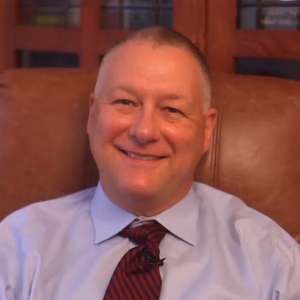
Flu Season Is Here
The best way to protect yourself this flu season is to get vaccinated Influenza is a serious disease that can lead to hospitalization and sometimes
Blog » A Few Reasons to See a Cardiologist
Your heart is one of the most important organs in your body. It’s responsible for pumping blood and oxygen throughout your body, ensuring that every other organ has the necessary resources to function properly. It’s also a muscle that needs to be cared for, just like any other muscle in your body. This is where a cardiologist comes in. A cardiologist is a specialist who focuses on the heart, and can help you maintain a healthy heart, diagnose and treat any heart-related conditions, and prevent future heart problems.
You have a family history of heart disease
If your parents or siblings have a history of heart disease, you are more likely to develop heart disease yourself. Seeing a cardiologist can help you assess your risk of developing heart disease, and help you take steps to prevent it.
Your primary care physician (PCP) referred you to a cardiologist
If your primary care physician recommends you see a cardiologist, don’t delay seeking treatment.
You have high blood pressure or high cholesterol
High blood pressure and high cholesterol are two of the major risk factors for heart disease. If you have either of these conditions, it’s important to work with a cardiologist to manage them effectively. Your cardiologist can help you make lifestyle changes, such as eating a heart-healthy diet and getting regular exercise, as well as prescribing medication if necessary.
You have a history of heart problems
If you have previously experienced a heart attack, heart failure, or any other heart-related condition, it’s important to see a cardiologist regularly. Your cardiologist can monitor your condition, adjust your treatment plan as necessary, and help you manage any symptoms you may be experiencing.
You’re experiencing chest pain or other symptoms
If you’re experiencing chest pain, shortness of breath, or any other symptoms that may be related to your heart, it’s important to seek medical attention right away. A cardiologist can perform diagnostic tests, such as an electrocardiogram (ECG) or echocardiogram, to determine the cause of your symptoms and recommend appropriate treatment.
You want to prevent future heart problems
Even if you don’t have any current heart problems, seeing a cardiologist can be a proactive step in preventing future heart problems. Your cardiologist can help you assess your risk factors, make lifestyle changes to reduce your risk, and monitor your heart health over time.

Michael Hagley, MD
Cardiologist
“For individuals with vascular disease, periodical visits with your cardiologist are essential to ensure appropriate secondary risk modifications to prevent future heart problems. For those with risk factors such as diabetes, high cholesterol, high blood pressure, a family history of heart disease or smoking, it is equally important to work with your primary care doctor to focus on primary risk modifications to help prevent the development of heart disease in the first place.”
In conclusion, your heart is one of the most important organs in your body, and it’s important to take care of it. Seeing a cardiologist can help you maintain a healthy heart, diagnose and treat any heart-related conditions, and prevent future heart problems.
Talk to your primary care provider to determine if you need a referral to a cardiologist or our Heart and Vascular Center. If you don’t have a primary care provider, Hutchinson Primary Care Associates is accepting new patients. Call 620-513-4850 to schedule an appointment.

The best way to protect yourself this flu season is to get vaccinated Influenza is a serious disease that can lead to hospitalization and sometimes

With warmer weather, it’s time to remind everyone to be on the alert and to share the road with motorcyclists. Both motorcyclists and motorists need

Did you know that nearly one-third of Americans ages 30-70 will experience bladder control symptoms at some point? Nearly 64% of those experiencing bladder control
1701 E 23rd Ave
Hutchinson, KS 67502
620-665-2000
Visitation Hours:
M-F 6:00 am – 9:00 pm
Sat-Sun 7:00 am – 9:00 pm